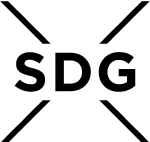Access to well-designed and safe water & sanitation services is a fundamental need for all humans. Yes, billions of people across the world don’t have access safe water, clean and usable toilets, and safe waste management. While thousands of organizations and billions of dollars in development programs are spent on these WASH problems, what is often overlooked is the role that identity plays in mediating people’s access to WASH. For instance, identity markers such as caste still prevent uniform access to water for everyone in rural India, disability prevents people from safely accessing toilets built both in urban and rural areas, the problem of toilet access for transgender people remains a problem globally. While identity markers such as gender and disabilities are recognized within the global WASH ecosystem, not enough nuanced research exists around these topics and program design and program funding decisions don’t fully account for all the ways in which identity confounds access to safe WASH for people. This needs to change.
This panel will address important questions
- How equitable are the current WASH systems and development programs on WASH in the Global South?
- Which identity groups have diminished access to and biased experiences within these system?
- What are some of the structural reasons for this exclusion?
- What measures can be taken to systematically address this within the SDG framework?
- What role do funders, policymakers, researchers, private sector, public sector, and civil society actors need to play?
Moderator for the session: Nirat Bhatnagar (Partner, Dalberg Advisors, and Founder of Belongg)
Speakers:
- VK Madhavan (Cheif Executive, WaterAid India)
- Manoj Gulati (Managing Director, India, Water.org)

